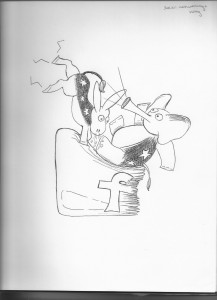Lauren Buckley
Opinions Editor
On Sept. 13, the University announced that Stephen J. Barilar would be the new chief of Public Safety after a national search. Barilar joined the University as a staff sergeant of the Department of Public Safety in March of 2011. Barilar replaced former Chief Jason Friedberg who served on campus for six years. Friedberg left the University to pursue an opportunity in the private sector leaving current Captain Douglas Lauver as interim chief until Barilar was hired.
Where did you receive your training and where did you work prior to this position?
“Prior to coming to Bucknell I was employed by the Pennsylvania State Police (PSP). I began my career with the PSP in April of 1985 and I retired as the Patrol Section Commander in Troop N Hazleton, Pa. in January of 2011.”
What will a typical week look like in your position?
“I don’t know if there is ever a typical week in law enforcement. I plan on being a part of the Bucknell community and addressing any and all issues that are brought to our attention.”
How have you adjusted to your role as chief over the past few days?
“So far it has been a smooth transition. I am very fortunate to work with a great group of professionals in the Public Safety Department. The well wishes I have received from across the campus have been very appreciated.”
How does your position as public safety chief compare to your previous positions?
“With the PSP, I commanded three separate stations; therefore, the command structure is very similar. I have spent the last 18 months learning about law enforcement at a university, which is a unique environment. Both experiences have been very beneficial in preparing me for this position.”
How do you collaborate with the other Public Safety officers?
“I have a great working relationship with the officers here in Public Safety. They know I have an open door policy and they can come and see me or call me anytime. I am very fortunate to have the officers that we have here.”
Do you have any goals you would like to implement during your time as chief?
“I just want to continue to make our department one that earns the respect and trust of the entire Bucknell community. I want people to feel comfortable contacting our department and trust that they will receive excellent police service.”
What is the best part about working on campus and what is the biggest challenge?
“The people at Bucknell have been by far the best experience. I have been treated extremely well by the faculty, staff and the students since I arrived here in March 2011. In all of police work, the biggest challenge is to ensure the protection and safety of everyone in our community.”
What is some important advice you would like to give University students?
“Be careful–the world is a changing place and there are dangers here in Lewisburg that were not prevalent years ago. As a third-shift supervisor, it often concerned me to frequently see students walking by themselves late at night or early in the morning. I would like to see students go out at night as a group and have each person look out for the best interest of each of their friends.”

